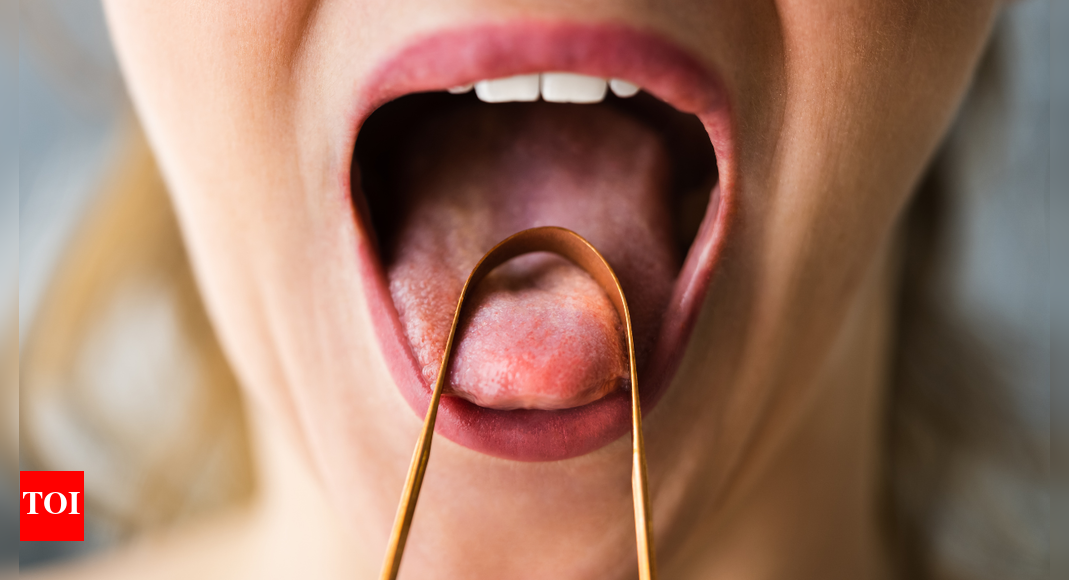
The tongue is the most neglected aspect of oral health, while most brushe their teeth twice a day but forgets to clean the surface of the tongue on which millions of bacteria collect while sleeping. The consequence is not only halitosis, but also a proliferation of toxins that may impact digestion and immunity. As explained by functional medicine doctor Dr. Robert DeBease, tongue cleaning can be a life-changing habit for ensuring oral and gut health, but why should one use copper tongue cleaner, let’s get into it!
The ancient rationale of tongue cleaning
The concept of tongue scraping was born in Ayurveda, where it is referred to as jihva prakshalana. It has been used for more than 5,000 years for overall health. In contemporary science, this ancient habit has a scientific explanation. The tongue picks up bacteria, food particles, and dead cells that create a thin film. This film becomes a site for destructive microbes to increase in number, leading to bad breath, plaque, and inflammation of the mouth. Tongue cleaning keeps the layer away and maintains healthy oral bacteria balance.
How copper is better

Dr. DeBease points out that copper is not only a metal, but a trace element that has established antimicrobial activity. Studies in scientific journals like the American Society for Microbiology verify that copper kills a broad spectrum of bacteria, fungi, and viruses within minutes of touching it. When a tongue cleaner made of copper is applied, it not only scrapes the tongue but also inactivates microbes on the surface. This eliminates recontamination due to the use of other materials.
The downside of steel
Most individuals employ stainless steel tongue cleaners under the impression that they are durable as well as hygienic. They are indeed tough, but steel is not self-sterilizing. On the contrary, microbes can live on its surface for hours, particularly if the cleaner is not dried immediately after use. This eventually provides an opportunity for bacteria to reproduce on the tool itself. Copper, being self-sterilizing, is far better. Research indicates that copper surfaces constantly kill microbes by releasing ions that rupture bacterial membranes. This makes it a safer and more reliable material for everyday use.
Advantages beyond freshness of the mouth

The advantages of using copper to clean the tongue extend far beyond odor removal. Dr. DeBease points out that a clean tongue can enhance taste perception and digestive efficiency. Once the tongue is clear of debris, it increases salivary enzyme activity, which is the initial process of digestion. It also cleanses the tongue and, along with it, decreases the bacterial load being swallowed into the gut and thereby promotes a healthier gut microbiome. Some evidence further suggests decreased systemic inflammation because fewer toxins are swallowed from oral buildup.
Other health benefits of tongue cleaning
Reduces bad breathImproves taste receptorsEnhances oral hygieneSupports digestionBoosts immune functionRemoves bacteria and toxins from the tongue
How to use a copper tongue cleaner effectively

It is advised by experts to clean the tongue every morning and evening, ideally before brushing. Pick up both ends of the copper scraper and pull it gently in one smooth stroke from the back to the tip of the tongue. Rinse the cleaner with warm water after each stroke and continue until the surface of the tongue appears pink and clean. Clean the tool after use and dry it off fully to maintain its antimicrobial property. Replace it every few months or whenever it starts to tarnish.An easy habit with high dividendsDr. DeBease refers to copper tongue cleaning as a “micro-habit with macro health impact.” It is inexpensive, less than a minute, and benefits several aspects of health. Individuals who make this a habit tend to find fresher breath, easier digestion, and enhanced oral comfort within days. Brushing and flossing save teeth, and copper tongue cleaning saves the portal of the gut, so it’s an integrated oral hygiene practice.







